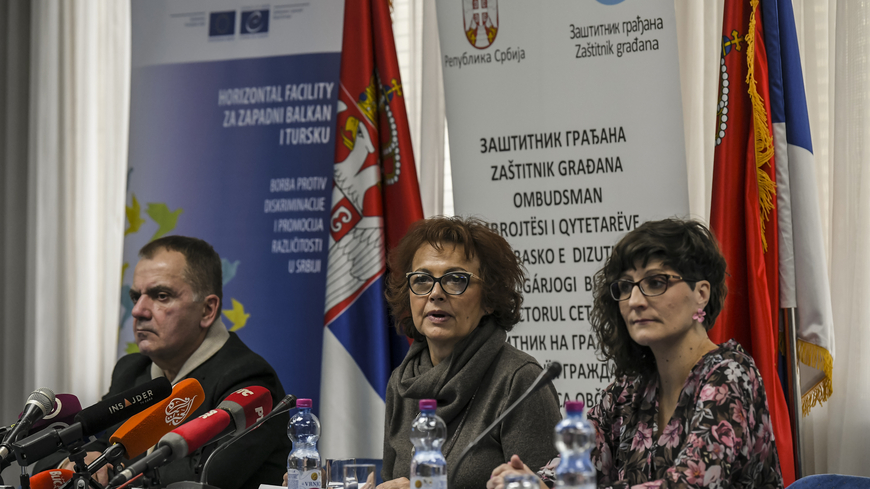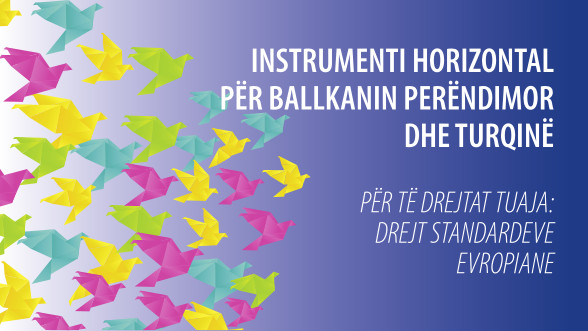A Special report on violence in schools, prepared by the Protector of citizens of Serbia in co-operation with a Panel of youth advisors, was presented to the public on 8 December in Belgrade. The development of the Report was supported by the European Union and the Council of Europe, through the action "Combating discrimination and promoting diversity in Serbia".
The report highlights that 77,7% students and 92,4% of teachers stated that violence exists in schools and every fourth child / youngster (23.8%) experienced some form of peer violence in past few months. These data have been in line with recently published results of the PISA 2022 test that shows that around 19% of girls and 17% of boys reported being bullied at least several times a month (OECD average: 20% of girls and 21% of boys).
The report is based on the findings and conclusions of the research designed and conducted by Youth advisors in their primary and secondary schools across the country, with the aim of assessing the frequency of certain forms of violence. The research also included a part dedicated to the analysis of the experiences and attitudes of students and teachers in relation to gender-based violence, violence against members of the LGBTI people and of the Roma community, as well as violence against persons with disabilities and elderly persons. 43.8% of students believe that homosexuality is a mental disorder or illness (mostly boys with 62.4%) and 24.9% of respondents believe that violence against LGBTI persons is justified (one in four students).
Nadia Ćuk, Head of the Council of Europe Office in Belgrade ad interim, emphasised the importance of tolerance and equality to guarantee and preserve open and pluralistic societies and reminded the audience to the ECRI General Policy Recommendation n.1: Combating racism, xenophobia, antisemitism and intolerance. This document recommends to the Governments of the member states to take measures in the field of education and information to strengthen the fight against racism, xenophobia, anti-Semitism and intolerance. Ćuk reiterated the commitment of the Council of Europe in supporting Serbia in complying with the European standards and European Union acquis in the framework of the enlargement process not only through the Inclusion and Anti-Discrimination Programmes Division but also through the Department of Education and the Reference Framework of Competences for Democratic Culture.
Zoran Pašalić, Protector of citizens, highlighted the importance of prevention and participation of all actors involved in the education and upbringing of children – from parents, teachers and schools to relevant institutions - centres for social welfare, prosecutor's offices and police. The school must be a safe place for our children and that is why everyone involved in the education and upbringing of children must be involved in the prevention of violence - from parents, teachers, and schools to competent authorities - centers for social work, prosecutor's offices and the police.
The development and the presentation of the Report were organised with the support of the action "Combating discrimination and promoting diversity in Serbia", which is implemented within the framework of the joint programme of the European Union and the Council of Europe "Horizontal Facility for the Western Balkans and Türkiye".



